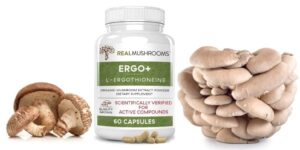
Debunking the Myths
Monosodium Glutamate (MSG) is a flavor enhancer used in many foods to boost and enhance taste. Over the years, it has sparked debate due to potential health concerns. This blog will uncover the scientific truths about MSG, examining its safety and practical applications.
What is MSG?
MSG is the sodium salt of glutamic acid, a non-essential amino acid naturally present in many foods, such as meats, cheeses, and some vegetables. It’s widely used in cooking for its ability to enhance umami, known as the “fifth taste.”
The Historical Controversy
In 1968, Dr. Robert Ho Man Kwok described the “Chinese Restaurant Syndrome” in the New England Journal of Medicine, highlighting symptoms like headaches and numbness after eating Chinese food. This ignited widespread concern about MSG, though no scientific evidence conclusively linked MSG to these symptoms.
Scientific Analysis: MSG Safety
Numerous studies have explored MSG’s safety. Notably, both the European Food Safety Authority (EFSA) and the U.S. Food and Drug Administration (FDA) classify MSG as “generally recognized as safe” (GRAS). Several double-blind placebo-controlled trials have not found a direct connection between typical dietary intake of MSG and adverse reactions.
MSG and Health
- Neurotoxicity: Although there are concerns about neurotoxicity, current research has not provided definitive evidence. The human body typically metabolizes glutamate efficiently.
- Allergic Reactions: Some individuals exhibit sensitivity to MSG, but these reactions are often mild and temporary. Large-scale studies show that not everyone is sensitive to MSG.
- Weight and Metabolism: The potential link between MSG and obesity has been explored, but lacks consistent evidence. More research is needed, considering lifestyle factors alongside MSG consumption.
Practical Use of MSG
When consumed at reasonable levels, MSG can be safely included in diets. It enhances flavor in low-sodium dishes, helping to reduce overall sodium intake.
Conclusion
Overall, scientific evidence does not support the claim that MSG is a widespread health hazard. Used appropriately and responsibly, MSG can enhance food flavor and be part of a balanced diet. Consumers should tailor their intake based on individual health profiles and reactions to MSG.
References
– EFSA Journal. “Scientific Opinion on the safety of glutamate etc.” EFSA.
– FDA. “Food Additive Status List.” FDA.
Understanding the scientific limitations and individual differences is essential for properly assessing the role of MSG in diets.
Written by
Globe Gums Inc
You may also interested in:

The Magic of Ergothioneine: Nature's Unique Antioxidant
Ergothioneine may not be a household name, but this unique amino acid is generating significant interest in nutrition science and preventive medicine. Found naturally in mushrooms, certain meats, and some
